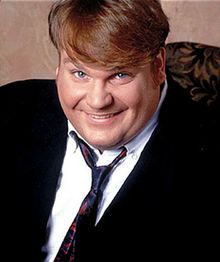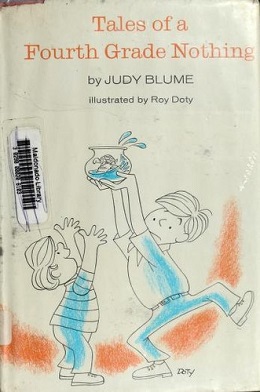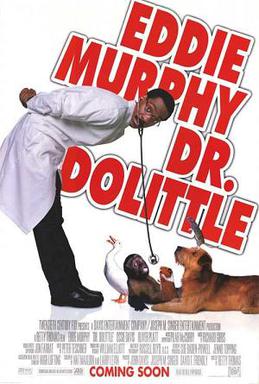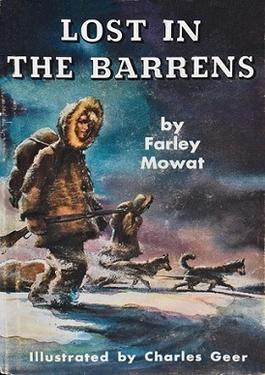
The Dark Tower IV: Wizard and Glass: Regard, or simply Wizard and Glass, is a fantasy novel by American writer Stephen King. The fourth book in the Dark Tower series, published in 1997 it placed fourth in the annual Locus Poll for best fantasy novel. Dave McKean created eighteen Illustrations for The Dark Tower IV: Wizard and Glass. The original eighteen illustrations appear only in the first edition hardback and trade paperback released in 1997.

Christopher Crosby Farley was an American comedian and actor. He was known for his loud, energetic comedic style, and was a member of Chicago's Second City Theatre and later a cast member of the NBC sketch comedy show Saturday Night Live for five seasons from 1990 to 1995. He went on to pursue a film career, appearing in films such as Airheads, Tommy Boy, Black Sheep, Beverly Hills Ninja, and Almost Heroes. From his early acting days and through the height of his fame, Farley struggled with obesity, alcoholism, and substance abuse. He died of a drug overdose at the age of 33.

Farley McGill Mowat, was a Canadian writer and environmentalist. His works were translated into 52 languages, and he sold more than 17 million books. He achieved fame with the publication of his books on the Canadian north, such as People of the Deer (1952) and Never Cry Wolf (1963). The latter, an account of his experiences with wolves in the Arctic, was made into a film of the same name released in 1983. For his body of work as a writer he won the annual Vicky Metcalf Award for Children's Literature in 1970.

Where the Red Fern Grows is a 1961 children's novel by Wilson Rawls about a boy who buys and trains two Redbone Coonhounds for hunting. It's a work of autobiographical fiction based on Rawls' childhood in the Ozarks.

Tales of a Fourth Grade Nothing is a children's novel written by American author Judy Blume and published in 1972. It is the first in the Fudge series and was followed by Otherwise Known as Sheila the Great, Superfudge, Fudge-a-Mania, and Double Fudge (2002). Although Otherwise Known as Sheila the Great features many of the same characters as the series, it does not fit exactly in the continuity of it because, as a spin-off, it only focuses on Peter's classmate, Sheila Tubman.

Dr. Dolittle is a 1998 American fantasy comedy film directed by Betty Thomas, written by Larry Levin and Nat Mauldin, and starring Eddie Murphy in the title role along with Ossie Davis and Oliver Platt. The film was based on the series of children's stories of the same name by Hugh Lofting, but used no material from any of the novels; the main connection is the titular character Dr. John Dolittle and his ability to talk to animals, although the Pushmi-Pullyu, a much-loved feature of the books, notably makes a very brief appearance in a couple of scenes. The first novel, The Story of Doctor Dolittle (1920) had originally and previously been filmed in 1967 as a musical of the same name, which was a closer adaptation of the book. The film was a box-office success, although it received mixed reviews from critics upon release.

Tom Sawyer is a 2000 American animated musical comedy film directed by Paul Sabella and Phil Mendez. Released direct-to-video on April 4, 2000, the film was produced by MGM Animation. It is the only MGM Animation production not to be available exclusively through Warner Home Video worldwide. This is also the final MGM Animation film before shutdown in 2002. It is an adaptation of Mark Twain's 1876 novel The Adventures of Tom Sawyer, with a cast of anthropomorphic animals instead of humans. Most of the characters' voices are generally performed by country music singers.
Children of the Red King is a series of ten children's fantasy, school and adventure novels written by British author Jenny Nimmo, first published by Egmont 2002 to 2010. It is sometimes called "the Charlie Bone series" after its main character. A series of five books was announced in advance, completed in 2006, and sometimes the books were called the "Red King Quintet" until its continuation.
The Kelly–Hopkinsville encounter was a claimed close encounter with extraterrestrial beings in 1955 near the communities of Kelly and Hopkinsville in Christian County, Kentucky, United States. UFOlogists regard it as one of the most significant and well-documented cases in the history of UFO incidents, while skeptics say the reports were due to "the effects of excitement" and misidentification of natural phenomena such as meteors and owls. The United States Air Force classified the alleged incident as a hoax in the Project Blue Book files.

The Snow Walker is a 2003 Canadian survival drama film written and directed by Charles Martin Smith and starring Barry Pepper and Annabella Piugattuk. Based on the short story Walk Well, My Brother by Farley Mowat, the film is about a Canadian bush pilot whose life is changed through an encounter with a young Inuk woman and their challenge to survive the harsh conditions of the Northwest Territories following an aircraft crash. The film won six Leo Awards, including Best Lead Performance by a Male, and was nominated for nine Genie Awards, including Best Motion Picture, Best Performance by an Actor, Best Performance by an Actress, and Best Adapted Screenplay.

Never Cry Wolf is a 1983 American drama film directed by Carroll Ballard. The film is an adaptation of Farley Mowat's 1963 "subjective non-fiction" book of the same name. The film stars Charles Martin Smith as a government biologist sent into the wilderness to study the caribou population, whose decline is believed to be caused by wolves, even though no one has seen a wolf kill a caribou. The film also features Brian Dennehy and Zachary Ittimangnaq. It was the first Disney film to be released by the studio under the renamed Walt Disney Pictures label. The film was released on October 7, 1983, for a limited distribution, and in the regular theaters on January 27, 1984.

Bingo is a 1991 American family comedy film directed by Matthew Robbins from a script by Jim Strain. The film follows Bingo, a clever runaway circus dog who goes on a cross-country search to find Chuckie, a boy he befriended. Along the way, Bingo gets into various adventures with colorful characters. Bingo was portrayed by Lace, a female border collie adopted from a shelter. Principal photography began on September 12, 1990.

Lucy-May of the Southern Rainbow is a Japanese anime series by Nippon Animation. This 1982 adaptation is part of the studio's popular World Masterpiece Theater franchise, based on the 1982 novel Southern Rainbow by Australian writer Phyllis Piddington (1910–2001), and tells the story of a young girl named Lucy and the hardships and excitement she and her family encounter when they move from England to Adelaide in Australia to start a farm.
Scamp is a canine Disney comics character, the son of Lady and Tramp, all of whom appear in the 1955 animated film Lady and the Tramp. Scamp is featured in comic strips and comic books of his own since the 1950s. In the final scene of the film, the dogs have a litter of puppies, including three girl pups who look like Lady, and a mischievous, restless boy pup who resembles Tramp. The puppies are unnamed in the film and only appear in one scene, but the little boy puppy made an impression, and King Features Syndicate launched a comic strip a few months after the film's release.

Lost in the Barrens is a 1956 children's novel by Farley Mowat. Later editions used the title Two Against the North.

Mutt is a fictional character from the G.I. Joe: A Real American Hero toyline, comic books and animated series. He is the G.I. Joe Team's dog handler (K-9), and debuted in 1984.

The Little Convict is a 1979 Australian live-action/animated drama film produced and directed by Yoram Gross, and written by John Palmer based on a story by Gross. It was a rare leading role for Rolf Harris, who acts as a narrator, frequently interrupting the story with narratives and songs.

Angus McGill Mowat, B.A., M.A., was a Canadian librarian who initiated and contributed to the continuing improvement of the library systems in Saskatoon and Ontario, from the 1920s through to the 1960s.















